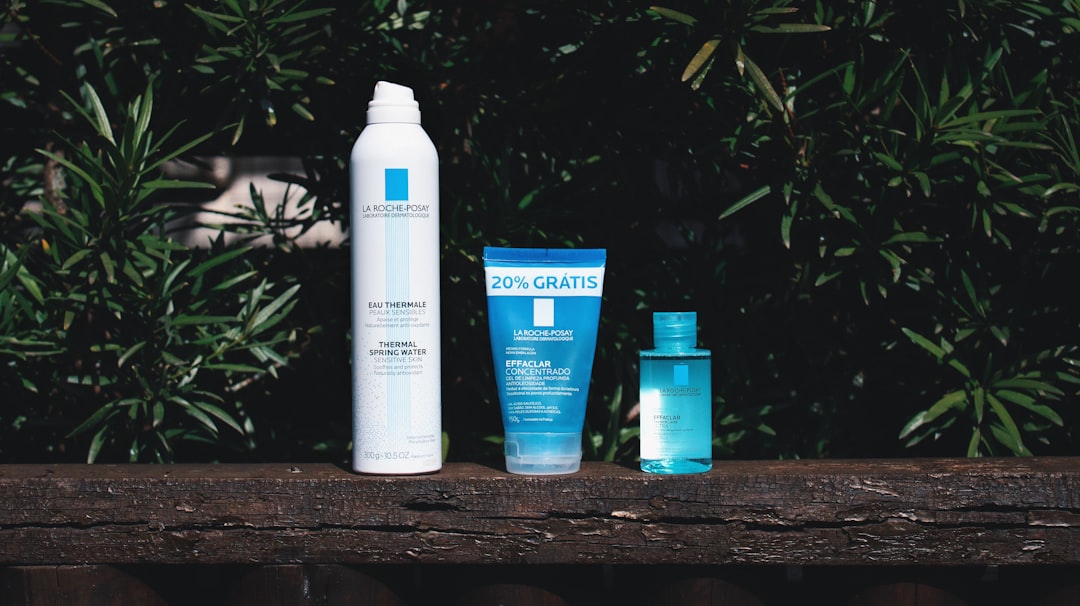Skincare is an essential part of our daily routine, and for good reason. Our skin is the largest organ in our body and acts as a protective barrier against the external environment. It is constantly exposed to pollutants, UV rays, and other harmful elements that can damage it over time. Taking care of our skin is not just about looking good, but also about maintaining its health and functionality. A good skincare routine can help prevent premature aging, reduce the risk of skin diseases, and improve overall confidence and self-esteem.
Furthermore, skincare is not just about the face; it encompasses the entire body. Neglecting the skin can lead to a range of issues such as dryness, irritation, acne, and even more serious conditions like skin cancer. By investing time and effort into a proper skincare routine, we can ensure that our skin remains healthy, radiant, and resilient. In addition, skincare can be a form of self-care and relaxation, providing a moment of mindfulness in our busy lives. Overall, skincare is an important aspect of maintaining our overall health and well-being.
Summary
- Skincare is important for maintaining healthy and radiant skin, as well as preventing premature aging and skin conditions.
- Identifying your skin type is crucial for choosing the right skincare products and routines that suit your specific needs.
- A daily skincare routine should include cleansing, toning, moisturising, and applying sunscreen, tailored to your skin type.
- Understanding ingredients in skincare products can help you make informed choices and avoid potential irritants or allergens.
- Sun protection is essential for preventing sun damage, premature aging, and reducing the risk of skin cancer. Always use a broad-spectrum sunscreen with SPF 30 or higher.
- Common skincare concerns such as acne, dryness, and sensitivity can be addressed with the right products and routines, but seeking professional advice may be necessary for more severe issues.
Identifying Your Skin Type
Understanding your skin type is crucial in order to choose the right products and develop an effective skincare routine. There are generally four main skin types: normal, dry, oily, and combination. Normal skin is well-balanced, with small pores and a smooth texture. Dry skin tends to feel tight and may have flakiness or rough patches. Oily skin is characterized by enlarged pores, excessive shine, and a tendency to develop acne. Combination skin is a mix of oily and dry areas, with the T-zone (forehead, nose, and chin) being oily and the cheeks being dry.
To identify your skin type, observe how your skin feels throughout the day and after cleansing. Normal skin will feel comfortable and balanced, while dry skin will feel tight and may have visible flakiness. Oily skin will feel greasy and may have a shine, especially in the T-zone. Combination skin will have both dry and oily areas. It’s important to note that our skin type can change over time due to factors such as age, hormones, and climate. Once you have identified your skin type, you can tailor your skincare routine to address its specific needs.
Daily Skincare Routine
A daily skincare routine is essential for maintaining healthy and radiant skin. It typically consists of several steps: cleansing, toning, moisturizing, and applying sunscreen. Cleansing is the first step and involves removing dirt, oil, and impurities from the skin. It’s important to choose a gentle cleanser that won’t strip the skin of its natural oils. Toning helps to balance the skin’s pH levels and remove any remaining traces of dirt or makeup. Moisturizing is crucial for all skin types as it helps to hydrate and protect the skin from environmental damage.
In addition to these basic steps, it’s important to incorporate targeted treatments into your routine based on your specific skin concerns. For example, if you have acne-prone skin, you may want to include a spot treatment or exfoliating product. If you have dry skin, a hydrating serum or face oil can provide extra nourishment. It’s also important to remember that consistency is key when it comes to skincare. Establishing a daily routine and sticking to it will yield the best results over time. Lastly, don’t forget to pay attention to other areas of the body such as the neck, chest, and hands, as they also require care and attention.
Understanding Ingredients
Understanding skincare ingredients is important for making informed choices about the products we use on our skin. There are countless ingredients found in skincare products, each with its own benefits and potential drawbacks. Some common ingredients include hyaluronic acid for hydration, retinoids for anti-aging, salicylic acid for acne treatment, and antioxidants like vitamin C for protection against environmental damage.
It’s important to be aware of any allergies or sensitivities you may have to certain ingredients in order to avoid adverse reactions. Reading product labels and doing research on ingredients can help you make informed decisions about which products are best suited for your skin type and concerns. Additionally, it’s important to be cautious of potentially harmful ingredients such as parabens, sulfates, and synthetic fragrances. Opting for natural or organic skincare products can be a safer choice for those with sensitive skin or those looking to avoid potentially harmful chemicals.
Sun Protection
Sun protection is a crucial aspect of skincare that should not be overlooked. Exposure to UV rays can lead to premature aging, sunburn, pigmentation, and an increased risk of skin cancer. It’s important to use sunscreen with broad-spectrum protection (UVA and UVB) every day, even on cloudy or overcast days. The recommended SPF (sun protection factor) is 30 or higher for adequate protection.
In addition to sunscreen, it’s important to take other sun protection measures such as wearing protective clothing, seeking shade during peak sun hours, and wearing sunglasses to protect the delicate skin around the eyes. Sunscreen should be applied generously and reapplied every two hours or more frequently if swimming or sweating. It’s also important to remember that sun damage can occur even indoors through windows and artificial lighting. By incorporating sun protection into your daily skincare routine, you can help prevent sun damage and maintain healthy, youthful-looking skin.
Common Skincare Concerns
There are a variety of common skincare concerns that many people face at some point in their lives. Acne is one of the most prevalent concerns, affecting both teenagers and adults. It can be caused by factors such as hormonal changes, stress, diet, and genetics. Treating acne involves using products with ingredients like salicylic acid or benzoyl peroxide to unclog pores and reduce inflammation.
Another common concern is dryness or dehydration of the skin. This can be caused by factors such as harsh weather conditions, hot showers, or using drying skincare products. Using a gentle cleanser and incorporating hydrating products like serums or face oils can help combat dryness and restore moisture to the skin.
Signs of aging such as fine lines, wrinkles, and loss of elasticity are also common concerns for many people. Using products with retinoids, peptides, or antioxidants can help improve the appearance of aging skin by stimulating collagen production and protecting against environmental damage.
Lastly, hyperpigmentation or uneven skin tone is a concern for many individuals, especially those with darker skin tones. This can be caused by factors such as sun exposure, hormonal changes, or inflammation. Using products with ingredients like vitamin C, niacinamide, or hydroquinone can help fade dark spots and even out the complexion.
Seeking Professional Advice
While having a good at-home skincare routine is important, there are times when seeking professional advice is necessary. If you have persistent or severe acne, eczema, rosacea, or other chronic skin conditions, it’s important to consult a dermatologist who can provide personalized treatment options.
Additionally, if you are unsure about your skin type or have specific concerns about your skin’s health or appearance, visiting a skincare professional such as an esthetician can provide valuable insights and recommendations tailored to your individual needs.
Professional treatments such as chemical peels, microdermabrasion, or laser therapy can also be beneficial for addressing specific skincare concerns that may not be effectively treated with at-home products alone.
In conclusion, taking care of our skin is an essential part of maintaining overall health and well-being. By understanding our skin type, developing a daily skincare routine with effective ingredients and sun protection measures, addressing common skincare concerns, and seeking professional advice when needed, we can ensure that our skin remains healthy, radiant, and resilient for years to come.
Discover the truth behind common skincare myths with our related article on 21 Skincare Myths Debunked: The Real Truths You Should Know. Separate fact from fiction and gain a deeper understanding of how to care for your skin. Additionally, learn how to create a spa-like experience at home with our insightful guide on How to Create a Spa-Like Experience at Home. Elevate your skincare routine and indulge in self-care with these expert tips.
FAQs
What is the importance of skincare for healthy skin?
Skincare is important for maintaining healthy skin as it helps to keep the skin clean, hydrated, and protected from environmental damage. It also helps to prevent premature aging and maintain a youthful appearance.
What are the basic steps of a skincare routine?
A basic skincare routine typically includes cleansing, exfoliating, moisturizing, and applying sunscreen. These steps help to keep the skin clean, remove dead skin cells, hydrate the skin, and protect it from sun damage.
What are the different skin types and how should they be cared for?
The main skin types are normal, dry, oily, combination, and sensitive. Each skin type requires specific care, such as using gentle cleansers and rich moisturizers for dry skin, and oil-free products for oily skin. It’s important to choose skincare products that are suitable for your specific skin type.
How does diet and lifestyle affect the skin?
Diet and lifestyle can have a significant impact on the health of the skin. A balanced diet rich in fruits, vegetables, and healthy fats can help to nourish the skin from the inside out. Additionally, factors such as stress, lack of sleep, and smoking can contribute to skin issues such as acne and premature aging.
What are some common skincare ingredients to look for?
Common skincare ingredients to look for include hyaluronic acid for hydration, retinoids for anti-aging, and antioxidants such as vitamin C and E for protection against environmental damage. It’s important to choose products with ingredients that are suitable for your skin type and concerns.




